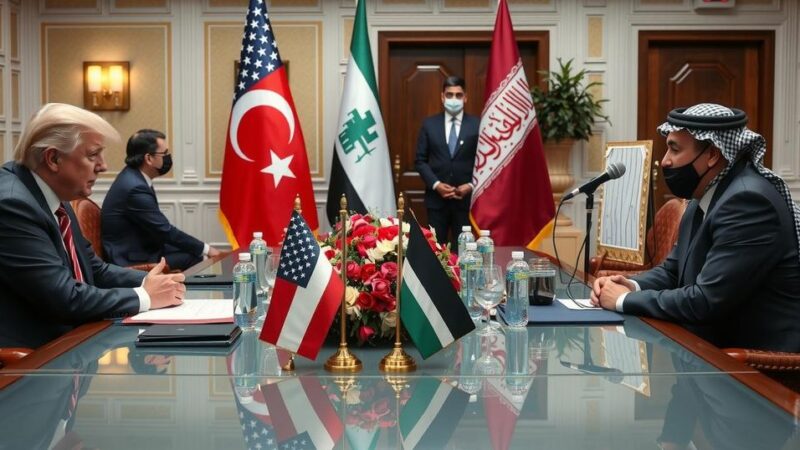Recent reports reveal Russia has recruited hundreds of Yemeni men through alliances with Houthi rebels, offering them military roles and potential citizenship. This recruitment not only aids the Houthis financially and enhances their military training but is also part of Russia’s larger strategy of utilizing migrant recruits to maintain its military efforts in Ukraine. Following significant regional unrest, this relationship signifies a shift in the Houthis’ role within Iran’s network, raising alarms regarding enhanced threats to international shipping and U.S. interests.
Recent reports indicate that the Russian armed forces have successfully recruited hundreds of Yemeni men following their increasingly close relationship with Yemen’s Houthi rebels. These recruits, lured by promises of high salaries and potential Russian citizenship, were transported to Russia through a Houthi-affiliated company, forcing them into military service to fight on front lines. This recruitment effort is economically beneficial for the Houthis and provides military training to Yemeni men in controlled territories. This initiative is part of Russia’s broader strategy to leverage migrant recruits—including those from Yemen, Nepal, India, and North Korea—to mitigate losses in Ukraine.
The significance of Yemen’s Houthis has intensified since the October 2023 Hamas assault on Israel, marking their transition from merely a proxy for Iran to a vital player in Iran’s regional influence efforts aimed at opposing U.S. presence in the Middle East. Reports suggest that Iran facilitated discussions for Russia to supply advanced weaponry, such as P-800 Oniks missiles, to the Houthis. While there is no firm evidence of such transfers, U.S. Special Envoy for Yemen, Timothy Lenderking, affirmed that Russia has been engaged in contacts with the Houthis regarding potential arms exchange. In addition, Russia reportedly planned to send small arms valued at ten million dollars, alongside intelligence support for the Houthis’ operations in the Red Sea.
The implications of this cooperation extend beyond simple military aid. By backing the Houthis, Russia aims to destabilize international maritime traffic, thereby diverting U.S. focus from the situation in Ukraine while enhancing its leverage over regional entities, particularly the UAE and Saudi Arabia, who are interested in a resolution to the Yemeni conflict. Nevertheless, it is crucial to recognize the pragmatic nature of Russian-Houthi relations, which hinges on the Houthis not directly targeting Saudi or Emirati interests, allowing Russia to use their alliance strategically against their common adversaries.
The continued partnership between Russia and the Houthis raises significant concerns for the United States and its allies, particularly regarding the potential for enhanced threats to international shipping routes. Even absent sophisticated weapon systems, the Houthis have already shown an ability to disrupt vital maritime commerce, significantly impacting traffic through the Suez Canal. If Russia were to provide advanced capabilities, this would exacerbate these threats significantly. Furthermore, potential Russian support in military manufacturing might lead to a more autonomous Houthi military capability, reducing their reliance on Iranian backing and increasing their operational independence in the region.
The relationship between Russia and Yemen’s Houthi rebels has deepened recently, particularly in the geopolitical context following increasing tensions in the Middle East. The Houthis, traditionally considered an Iranian proxy, are now viewed as crucial players within Iran’s coalition of allies that are aligned against Western influence. This shift in perception has greater implications for regional security, particularly against the backdrop of U.S. adversaries seeking to consolidate their power and challenge Western interests.
In summary, Russia’s recruitment of Yemeni mercenaries through the Houthis highlights a strategic alignment that serves multiple purposes. It bolsters the Houthis’ capabilities while simultaneously providing Russia with leverage in the Middle East. This partnership poses risks to international shipping security and illustrates a troubling trend of increased cooperation between U.S. adversaries, suggesting that the implications of these developments extend far beyond Yemen to impact broader geopolitical dynamics.
Original Source: www.atlanticcouncil.org






